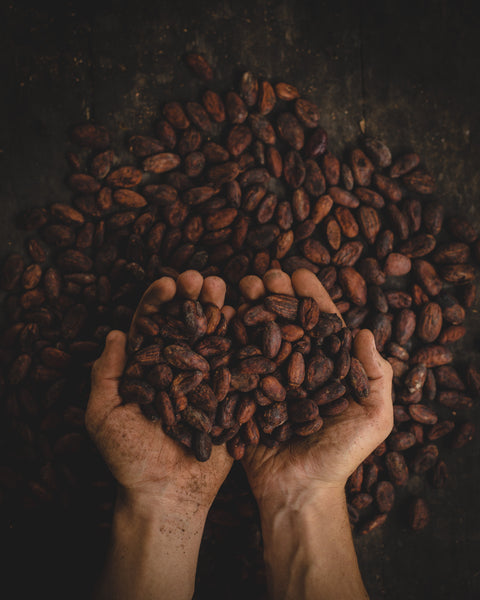If you haven’t heard of carob, then you’re in for a treat. This Mediterranean legume comes from the carob tree and has been used in the kitchen for centuries. In fact, these little pods date back to ancient Egyptian times when carob pods were fed to animals. Today, it’s a popular substitute for chocolate. Keep reading to learn more about what carob powder is and how your body can reap its nutritional benefits.
What Is Carob Powder?
Also known as locust bean and St. John’s bread, carob is a legume found in long, leathery pods that grow from the carob tree. The pods contain seeds that are cultivated and consumed whole or as a powder. Most cooks choose the latter.
Carob is prepared into a brown powder by drying, roasting, and grinding the pulp of the carob pod, which can be used in baked goods and beverages.
What Does Carob Taste Like?
You’ve probably heard of cacao more so than carob. Cacao and carob have similar uses, but they definitely don’t taste the same.
Cacao
Cacao is used to create chocolate by grinding the fermented beans into a paste. Sweeteners are typically used with cacao as it is quite bitter naturally. Caffeine is also found in cacao.
Carob
Carob is naturally sweet, so no sweeteners or additives are needed. However, caffeine and theobromine are not present in carob powder—which means you can enjoy a carob treat without the crash.
Nutritional Benefits of Carob Powder
There are plenty of nutritional benefits to using carob powder. From its naturally-sweet nature to its gastrointestinal advantages, there’s a lot to love about carob powder.
Low Fat
Cacao powder contains six grams of fat per two tablespoons, whereas carob powder has none. This makes carob powder a great choice for those looking to watch their intake.
Low Sodium
Too much sodium in your diet can lead to health problems like high blood pressure and heart issues. According to the U.S. Food and Drug Administration, Americans consume about 3,400mg of sodium daily. However, it is recommended that adults limit their sodium intake to 2,300mg.
Carob powder contains no sodium, making this legume a great addition to a low-sodium diet.
Gluten-Free
Carob powder is gluten-free. This means it does not contain protein found in wheat, barley, or rye. If you’re suffering from celiac disease or are sensitive to gluten products, then carob powder is for you.
High Fiber
Two tablespoons of carob powder contain nearly five grams of fiber. This means that carob can help you control your blood sugar, lower your cholesterol, and help you stay fuller longer.
Caffeine-Free
A big benefit of carob is that it is caffeine-free. Carob is naturally sweet, unlike its caffeinated counterpart: cacao. If you’re watching your caffeine intake or have eliminated caffeine from your diet altogether, then carob powder is an ideal chocolate substitute.
Antioxidants
Carob powder contains an abundance of polyphenol antioxidants—specifically 24 polyphenol compounds, which are mainly gallic acid and flavonoids. Both antioxidants have been shown to reduce stress.
Vitamins & Minerals
Carob powder is a powerhouse of vitamins and minerals. A serving of carob powder contains vitamins E, D, C, Niacin, B6, and folic acid. Take a look at carob powder’s nutritional facts for the full scoop.
Nutrition Facts Table
Two Tablespoons of Carob Powder
|
Sugar |
6g |
|
Sodium |
0g |
|
Calcium |
42mg |
|
Fiber |
5g |
|
Iron |
0.35g |
|
Magnesium |
6mg |
|
Potassium |
99mg |
|
Riboflavin |
0.055mg |
|
Niacin |
0.228mg |




